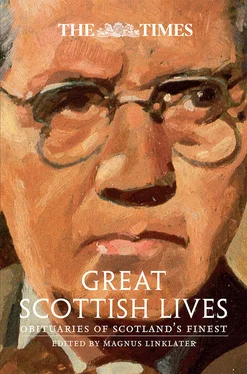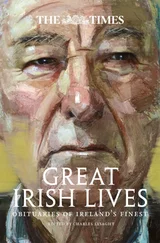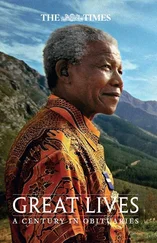But his opus magnum was yet to be accomplished. When we were startled by the Indian mutiny, it was not a favourite in high places or a dilettante soldier who was selected to save our tottering empire. There was a sigh of satisfaction and content throughout the country when we were told that Sir Colin Campbell had at a moment’s notice, and with alacrity, taken command of the forces engaged in putting down that which history will call the Great Mutiny. From the time that Sir Colin Campbell took the field and set his columns in motion, rebellion, the offspring of mutiny, withered and died.
When his labours in the field were over, and he had returned home to receive the acknowledgments of the whole country, the thanks of Parliament, the approbation of his Sovereign, and the honours he so valued as a soldier, he was not permitted to rest quietly on the laurels he had gathered. At the review of the Volunteers at Brighton he took the command at the request of the higher powers; but after it was over he said it was his last day in the field, and he shaved off his moustache as a sign that he had retired from active service. A few months ago he had a severe illness, in which the lungs and heart were implicated, but the old shot-and-steel-rent body resisted the attack of the great enemy, and to the delight of his friends he seemed to become nearly as well as ever he had been of latter years, and no one was more firm and vigorous for his years. Appointed Colonel of the Coldstream Guards in 1860, Field Marshal in 1862, Colin Campbell, Lord Clyde, had attained heights far beyond the flights of his highest ambition. At last came the illness of which he died, not perhaps as in his young days he would have desired, but as in his old age he would have surely sought to pass away − amid the tender cares and subdued sorrow of those who loved him well, and not the less that he had been the comrade of the soldier whose family stood by his pillow.
In person Lord Clyde was well knit, symmetrical, and graceful; but of late years his shoulders became somewhat bowed, though he lost little of the activity which was remarkable in so old a man. To the last his teeth remained full and firm in the great square jaws, and his eye pierced the distance with all the force of his youthful vision. His crisp, grey locks still stood close and thick, curling over the head and above the wrinkled brow, and there were few external signs of the decay of nature which was, no doubt, going on within, accelerated by so many wounds, such fevers, such relentless, exacting service. When he so willed it, he could throw into his manner and conversation such a wondrous charm of simplicity and vivacity as fascinated those over whom it was exerted, and women admired and men were delighted with the courteous, polished, gallant old soldier.
Sir David Livingstone
Missionary and explorer, whose search for the real source of the Nile led to his death – ‘fallen in the cause of civilisation and progress’
1 May 1873
The following telegram, dated Aden, the 27th inst., has been received at the Foreign Office from Her Majesty’s Acting Consul-General at Zanzibar:–
‘The report of Livingstone’s death is confirmed by letters received from Cameron, dated Unyanyembe, October 20. He died of dysentery after a fortnight’s illness, shortly after leaving Lake Bemba for eastward. He had attempted to cross the lake from the north, and failing in this had doubled back and rounded the lake, crossing the Chambize and the other rivers down from it; had then crossed the Luapuia, and died in Lobisa, after having crossed a marshy country with the water for three hours at a time above the waist; ten of his men had died, and the remainder, consisting of 79 men, were marching to Unyanyembe. They had disembowelled the body and had filled it with salt, and had put brandy into the mouth to preserve it. His servant Chumas went on ahead to procure provisions, as the party was destitute, and gave intelligence to Cameron, who expected the body in a few days. Cameron and his party had suffered greatly from fever and ophthalmia, but hoped to push on to Ujiji. Livingstone’s body may be expected at Zanzibar in February. Please telegraph orders as to disposal. No leaden shells procurable here.’
A plain Scottish missionary, and the son of poor parents, David Livingstone yet came of gentle extraction. Considering that his father and himself were strong Protestants, it is singular that his grandfather fell at Culloden fighting in the Cause of the Stuarts, and that the family were Roman Catholics down to about a century ago. More recently the Livingstones were settled in the little island of Ulva, on the coast of Argyleshire not far from the celebrated island of Iona.
Dr. Livingstone’s father, Neill Livingstone, kept a small tea dealer’s shop in the neighbourhood of Hamilton, in Lanarkshire, and was a ‘deacon’ in an independent chapel in Hamilton. The family motto was ‘Be honest.’ His son was born at East Kilbride, in Lanarkshire, in or about the year 1816. His early youth was spent in employment as a ‘hand’ in the cotton-mills in the neighbourhood of Glasgow; during the winter he pursued his religious studies with a view to following the profession of a missionary in foreign parts.
While working at the Blantyre mills, young Livingstone was able to attend an evening school, where he imbibed an early taste for classical literature. His religious feelings, however, warmed towards a missionary life; he felt an intense longing to become ‘a pioneer of Christianity in China,’ and hoped that by so doing he might ‘lead to the material benefit of some portions of that immense empire.’
We next find him, at the age of 19, attending the medical and Greek classes in Glasgow in the winter, and the divinity lectures of Dr. Wardlaw in the summer. His reading while at work in the factory was carried on by ‘placing his book on the spinning-jenny,’ so that he could ‘catch sentence after sentence while he went on with his labour.’ In 1838 he resolved to offer his services to the London Missionary Society as a candidate for the ministry in foreign parts. The opium war, which then was raging, combined with other circumstances to divert his thoughts from China to Africa. Having been ordained to the pastoral office, he left these shores in 1840 for Southern Africa, and after a voyage of nearly three months reached Cape-Town. His first destination was Port Natal, where he became personally acquainted with his fellow countryman, the still surviving Rev. Robert Moffat, whose daughter subsequently became his wife and the faithful and zealous sharer of his toils and travels, and accompanied him in his arduous journey to Lake Ngami.
It was not until 1849 that he made his first essay as an explorer, strictly so called, as distinct from a missionary; in that year he made his first journey in search of Lake Ngami. In 1852 he commenced, in company with his wife, the ‘great journey,’ as he calls it, to Lake Ngami, dedicating his account of it to Sir Roderick Murchison, as ‘a token of gratitude for the kind interest he has always taken in the author’s pursuits and welfare.’ The outline of this ‘great journey’ is so familiar to all readers of modern books of travel and enterprise that we need not repeat it here. It is enough to say that in the ten years previous to 1855 Livingstone led several independent expeditions, into the interior of Southern Africa, during which he made himself acquainted with the languages, habits, and religious notions of several savage tribes that were previously unknown to Englishmen, and twice crossed the entire African continent, a little south of the tropic of Capricorn, from the shores of the Indian Ocean to those of the Atlantic.
In 1855 the Victoria gold medal of the Geographical Society was awarded to Livingstone in recognition of his services to science. In the whole of these African explorations it was calculated at the time that Livingstone must have passed over no less than 11,000 miles of land, for the most part untrodden and untraversed by any European, and up to that time believed to be inaccessible.
Читать дальше












